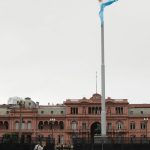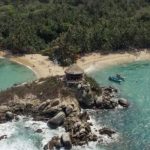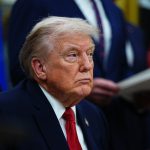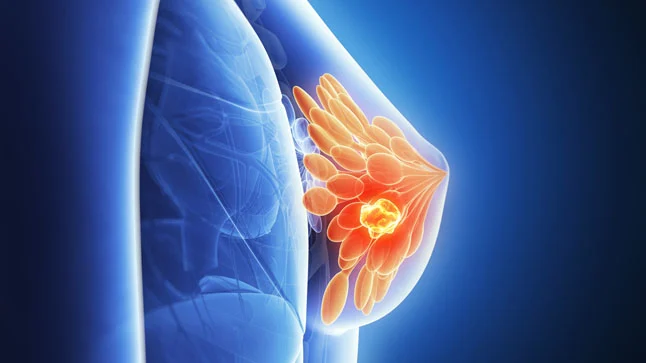In eight days the Ortega dictatorship illegally annulled the nationality of 317 critical Nicaraguans and ordered the confiscation of the assets of 94; However, more than a show of power, the regime of Daniel Ortega and Rosario Murillo has revealed a “political weakness” and the existence of a government guided by a “deep fear” of the protests of an “organized people”, highlighted three citizens declared “stateless” and deprived of their citizenship rights in perpetuity.
The poet and novelist Gioconda Belli, the academic Ernesto Medina and the peasant leader Francisca Ramírez spoke with the journalist Carlos Fernando Chamorro, director of CONFIDENTIALin the program This week, broadcast on the Confidencial Nica channel on YouTube.
To these four Nicaraguans, all in exile, the dictatorship took away their nationality along with 90 other Nicaraguansordered the confiscation of their assets and declared “fugitives from justice”, this February 15.
“None of us is going to feel denationalized, we carry what we are Nicaraguan inside, no one can take it from us; but, then, they hurt us with the matter of property, which is quite cruel, inhuman and destined to leave us, on the one hand, without a country and, on the other hand, without a home”, said the writer Belli, exiled in Madrid, Spain .
“It’s like taking away all the footholds you have on earth, but they won’t be able to do it, but the gesture implies superlative cruelty.”
The leader of the Anticanal Peasant Movement, who is taking refuge in Costa Rica, opined that “the only traitor to the country is Daniel Ortega, who handed over national sovereignty to the Chinese Wang Jing, in 2013.”
“I challenge Ortega to see us in court if I am guilty of something and show me that we, whose nationality has been taken away, are criminals,” Ramírez said.
“We are people who adhere to the Political Constitution, which (establishes) that any dissatisfied person can demonstrate, and that is what we have done, and thank God we decided for the civil struggle,” stressed the peasant leader, who led the protests to stop the expropriations of land that the Government intended to carry out in the canal strip in the area of Nueva Guinea.
Ortega and Murillo’s nightmare
For the academic Ernesto Medina, exiled in Germany, the latest actions of the regime show a “political weakness.” “Since April 2018, neither Daniel Ortega nor Rosario Murillo have slept peacefully, when they close their eyes they begin to see the great demonstrations of April and May, those streets full of blue and white flags, of people screaming, feeling free.”
“That for Ortega is a nightmare that cannot be erased, and seeing that, despite everything he has done, they have not been able to erase that image, and they know that these people are out there, although frightened and unable to express themselves right now, but they know that one wrong step they take and people will go out into the streets again, yell at them again and demand that they leave so that we can build the Nicaragua that we dream of,” said Medina, former rector of the universities. Autonomous of Nicaragua (UNAN-León) and American (UAM), respectively.
It valued that the release and exile of 222 political prisoners, and their subsequent denationalization, as well as Monsignor Rolando José Álvarez’s refusal to board the plane to go to the United States, it was “a boomerang” that “exploded in the face” of Ortega and Murillo.
The first group that the regime annulled their nationality was 222 former political prisoners, who were exiled to the US, on February 9. The following day, Ortega added to the list Monsignor Álvarez, Bishop of the Diocese of Matagalpa and Apostolic Administrator of the Diocese of Estelí, sentenced to more than 26 years in prison after refusing to be banished by the dictatorship to US territory.
They try to erase political leaders
According to Medina, the regime has begun to resort —wrongly and unsuccessfully— to actions that it considers give “strength” to the image of the “ruler who can do everything, who can decide on the lives and properties of Nicaraguans.” .
“They want to do everything, what they can, to eliminate or try to erase what they believe is the leadership that could take the lead in a new mass movement (like the one in 2018,” the former rector stressed.
Belli believes that the actions of the dictatorship “They give the idea of an immature governmentguided by impulses (dominated) by a deep fear of the people”.
“You can still see the terror that 2018 left them. With this they are putting another fear on people, that is, telling them ‘we can not only throw you in jail, we can take away your nationality, we can take away everything you have.’ They are trying to close the fence of fear in which they have Nicaragua, “explained the poet.
For his part, Ramírez considered that Ortega and Murillo intend to “divert attention” from the opponents. “(They want us) to dedicate ourselves to dealing with our personal problems and not to continue looking out for our country, not to continue demanding the return of democracy.”
“They are not going to achieve it because we are very clear that Nicaragua has to be free (…) We peasants have struggled for ten years, and rather (the denationalization), it rectifies you in the struggle,” the peasant leader sentenced.
Ortega loses support among supporters
Medina also highlighted the loss of support for the regime among the same supporters of the Sandinista Front and public employees. “There is a general rejection of the sentence against Monsignor Rolando Álvarez, who It is an act of revenge by Daniel Ortega”.
“Little by little, this servility, which characterizes the people who surround Ortega and Murillo, is reaching a dangerous point —for them— of breaking away,” the academic pointed out.
“The most serious thing,” he continued, “for Ortega and Murillo is that, every day, they are going to take actions and wilder decisions, more unscrupulous; obviously, people who have a minimum of dignity, of principles, will reach a point where they say ‘enough of this, it can’t be anymore’”.
The peasant leader indicated that Álvarez’s imprisonment “is something that the people do not forgive (Ortega)”, and that “within his own followers there are many Catholics, who secretly say that things are not correct.” She recalled that when the peasants began to march, Sandinista sympathizers claimed that “you are confused because the commander is a good person, he thinks of the good of the country.” However, now the same fans admit: “you were right, we regret it, we feel resentment because, at the time, we ignored you and today we are totally defenseless.”
“What he did is uniting us, it is not dividing us, because today it is clear that (Ortega) is a person willing to do whatever it takes — even holding his own people hostage — to stay in power,” Ramírez said.
Impact of confiscations
Last Friday, The Attorney General’s Office (PGR) confiscated 16 apartments of the “Amazonia” housing complex, and the Special Operations Directorate (DOEP) of the Police raided the house of the journalist Sofía Montenegro and the lawyer Azáhalea Solís, located in the same residential area in Reparto San Juan. Both citizens are part of the group of 94 Nicaraguans declared “stateless.”
Residential sources informed CONFIDENTIAL that the owners of the apartments were summoned on Thursday to the PGR, to notify them of the surprising dispossession of their properties —which have belonged to them for more than 30 years— at the hands of the State, despite the fact that there is no previous process or claim that justifies the appropriation of real estate.
The options that the PGR gave the inhabitants of “Amazonia” were to pay a monthly rent of 500 dollars to continue in their homes, or to vacate the apartments.
On this subject, Belli expressed that, generally, “we have thought that (Ortega and Murillo) have already reached a limit, and they always surprise us by doing something more than we expected could happen.”
He said that “now more than ever, the Nicaraguan opposition has the obligation to put aside their egos and personal projects, and that we all come together to point in one direction, which is the end of the Ortega-Murillo dictatorship, which It is the only thing that is going to allow us to truly liberate our country.”
“It seems to me,” he added, “that there is currently an important condition to achieve this, we already have many leaders abroad, we have international opinion in our favor.”
Regarding the confiscations, Medina appreciated that “investors are viewing Nicaragua with great concern”, so that “the types of investments that can feel good in Nicaragua are those that end up destroying the countries, such as illegal capital that is the product of illicit businesses.”
“For them Nicaragua is a paradise, because it is enough for them to find someone who feels sheltered by the shadow of power, who knows how to get away with it and who can do whatever they want; obviously, that is the ideal partner for this type of people”, explained the former rector.
“The danger of Nicaragua is to deteriorate rapidly, and turn the country’s economy into a pariah, which is what Ortega and Murillo are turning Nicaragua into,” he sentenced.


















